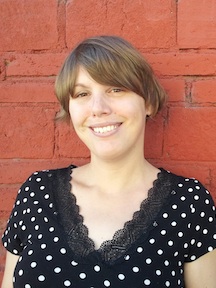By Sean Givnish
We often think of philosophy as a subject fit for the oldest and wisest in society. Only these individuals, we may presume, have the capabilities of thinking through such dense matters. Philosophy as a subject for kids, by these standards, would seem strange. But why is that so? By nature, kids are great philosophers. They are inquisitive, and they are able to look at the world in a profoundly unbiased way. Educating children about philosophy is actually quite a valuable tool to give them, and for ΦBK alum Amy Reed-Sandoval, it has translated into some meaningful nonprofit work.
Amy Reed-Sandoval (ΦBK, Temple University, 2004) is an assistant professor of philosophy at the University of Texas, El Paso and has had a lot of experience teaching philosophy to children. Throughout her academic career, she searched for ways to take the study of philosophy off the college campus and into the community. It was during her doctoral studies at the University of Washington when she was introduced to “Philosophy for Children,” something that has guided her work in the non-profit sector since. Philosophy for children advocates teaching philosophy to kids based on the the realization that they actually comprehend and enjoy it. Many of us have encountered the extremely inquisitive child who asks us questions to which we cannot even fathom the answers. Did you ever think maybe these kids could be tomorrow’s philosophers?
With these ideas in mind, Reed-Sandoval founded The Oaxaca Philosophy for Children Initiative, a project that works to provide free philosophy courses to K-12 level youth in Oaxaca, Mexico. She chose Oaxaca because of frequent trips there while her partner completed field work and her growing connection to the region. In addition, she studied Spanish and was able to put this skill set from her education to use in her work. The program she spearheaded is in partnership with the Oaxaca Street Children Grassroots group, which provides the classroom and practical necessities. She admits that it was difficult at first to convince people of the value of the program; philosophy is not a bare necessity, but it is a very important topic that can make a huge difference in children’s lives.
In 2011, Reed-Sandoval taught her inaugural two courses in children’s philosophy in Oaxaca and has continued ever since. She has largely completed the programs on her own, with the help of some volunteers. She reflects on how meaningful the work has been, and the resulting self-confidence boost she has noticed in the children. Reed-Sandoval has been working with many of the students for several years now and has had the chance to see them grow. Her work has truly flourished.
Now that she resides in El Paso, Reed-Sandoval is also working to develop a “Philosophy for Children of the Borderlands” program, a philosophy for children program designed for the children located in the U.S.-Mexico border community. She has long been interested in the social and political context that underpin a child’s environment, and argues that these are issues that must be considered when educating students. This is especially relevant for a community located between two nations. Each child comes from unique contexts and their education must reflect that. For example, in Oaxaca, Reed-Sandoval utilizes teachings of indigenous Oaxacan philosophies in her courses.
Amy Reed-Sandova has become a shining example of “philosophy for children,” and taking the study of philosophy out into the community. Her efforts have positively impacted the lives of many children. She was able to combine philosophy and Spanish, two facets of her liberal arts education, into meaningful work in the community. She is proud of her ΦBK membershiop and the organization’s role in promoting and celebrating the liberal arts. This is certainly a big part of the path that she has followed in life.
Sean Givnish is a senior at Temple University studying political science. He previously studied at the LSE in London. Temple is home to the Rho of Pennsylvania Chapter of Phi Beta Kappa.




